
By Rebecca Drew
THIS STUNNING UK teenager was fortunate to receive a life-saving liver transplant only to then contract meningitis that left her brain scarred to later receive a potentially deadly cancer diagnosis – but now she is in remission she insists that the disease has made her STRONGER.
Before falling ill with liver disease when she was 16-years-old, Sophie Houghton-Hinks (19) from Poole, UK, was a keen dancer who loved her sports. Sophie’s diagnosis of liver failure came in December 2016 after she collapsed and was rushed to hospital; her failure was caused by an autoimmune disease called Primary Sclerosing Cholangitis (PSC) which affects the bile ducts in and surrounding the liver.

Sophie was transferred to London’s Royal Free Hospital for treatment where doctors tried to open her bile ducts without success before being told that there was no other option than to have a transplant. Her brother, Daniel, went through the tests to see if he could donate half his liver but she received the call in May 2017 letting her know that another match had been found from the organ donation register and after nine hours of surgery she was awake, in intensive care and with a new liver. Less than two weeks later, Sophie was discharged and she was excited to start her brand new life and was back at the gym a fortnight after coming home. Then just a few weeks later, Sophie started to feel unwell and was diagnosed with viral meningitis which was treated at the Royal Free Hospital.
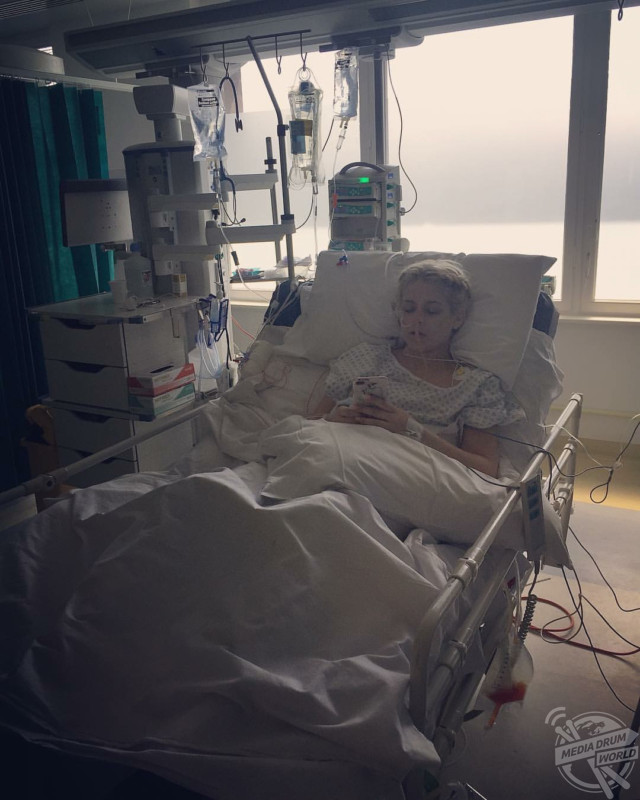
Another couple of weeks after this treatment, Sophie was admitted to hospital again and was diagnosed with stage four Post-Transplant Lymphoproliferative Disorder in October 2017. She found out that she had cancer in her throat, lungs, liver, spleen, abdomen and brain and she was transferred to University College London Hospital for treatment.
“My liver failure was caused by having an autoimmune disease called Primary Sclerosing Cholangitis, which I was diagnosed with when I was sixteen-years-old. It was December 2016 when I first collapsed due to my liver failure,” she said.

“I was then subsequently admitted to hospital in Poole. Due to Poole hospital not having the specialist doctors which I needed I was rushed up to the Royal Free Hospital in London. I was fed through a tube which went through my nose, as I was unable to eat.
“It wasn’t long before I had an operation called an ERCP, which was to try and open up my bile ducts. They attempted this twice before admitting that there wasn’t any other option than a liver transplant.

“My brother went through the process to donate half of his liver, he only had one more test to do before he could donate when I got the call at two in the morning on the ninth of May to say that they had a liver from the organ donation list.
“We travelled up to London straight away and at four o’clock that afternoon I was taken down to surgery. After nine hours of surgery I woke up in ICU, with a new liver.
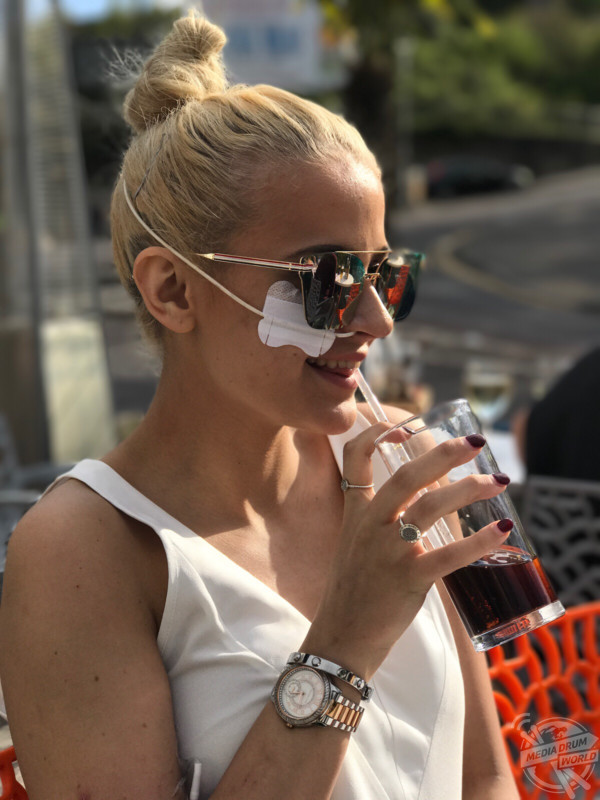
“I was out of hospital after just thirteen days, and I began to start my new life. However, my body didn’t agree with my decision and I became very ill again. I had viral meningitis. They rushed me back up to the Royal Free where I was given treatment to alleviate the symptoms. Having the meningitis scarred my brain permanently.
“A few weeks after this I began to feel unwell again and was admitted to Poole Hospital once more. They did a CT scan and they found suspicious findings, so therefore I was rushed back to the Royal Free where they did further investigation.

“They found the cancer in my throat, on my lungs, on my liver, in my spleen and pockets of it across my abdomen, and brain. I was then transferred to University College London Hospital.”
Sophie found out that the medications she was on to prevent her body rejecting her new liver caused her to get lymphoma.
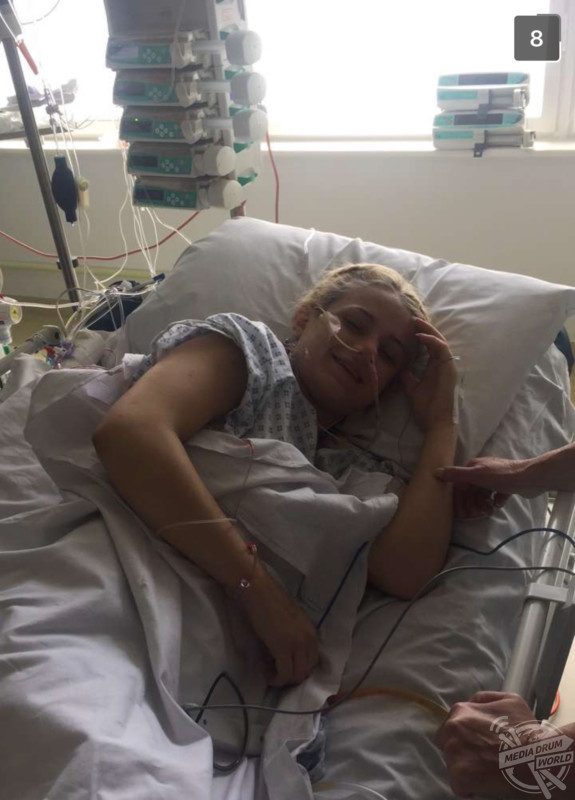
After her cancer diagnosis, Sophie had six months of gruelling chemotherapy treatment which was administered directly into the spinal cord and through IV.
Sophie discussed the side effects of treatment and spoke about the problems her family had to overcome during this.
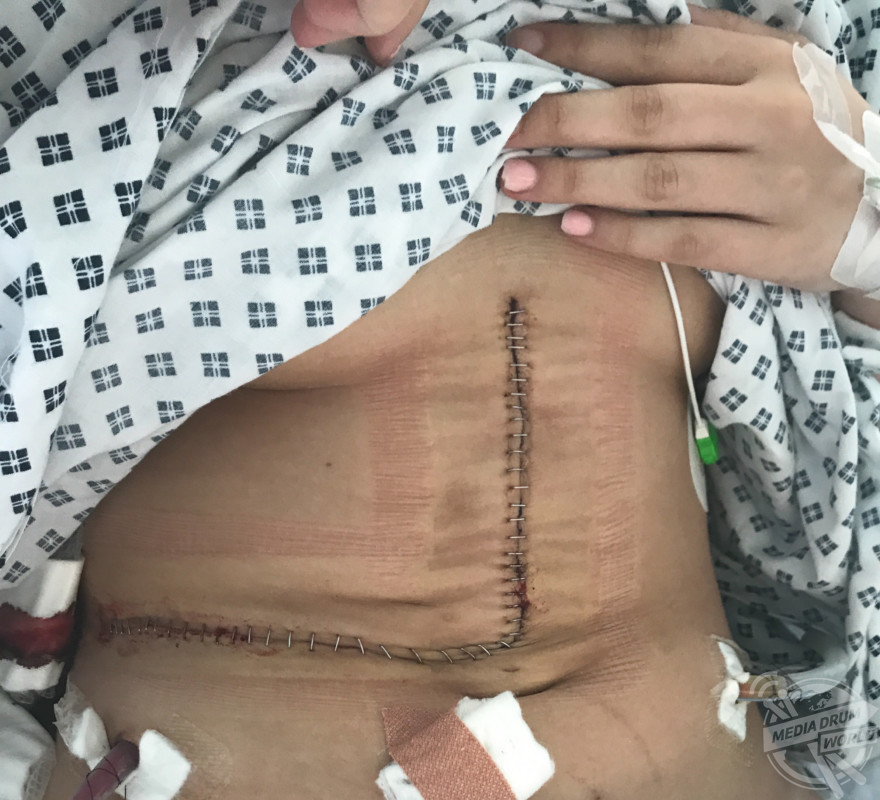
“I had horrendous side effects, from burning sensations in my hands and feet, to my stomach and bowels shutting down. I suffered from mucositis badly, from ulcers in my mouth to it spreading to my stomach and bowels, which caused me to be rushed to intensive care,” she said.
“I also suffered from Methotrexate Encephalopathy, which is swelling on the brain. This caused me to be paralysed all down my right side and I was again rushed to intensive care for this as I couldn’t speak and I had really bad rigors.

“Throughout the chemotherapy I lost my appetite completely, sometimes going two to three days without eating anything. I lost around four-stone due to this, my doctors became very worried about this and therefore I had a J-Peg feeding tube inserted into my stomach.
“I also suffered with sepsis as I had no immune system.
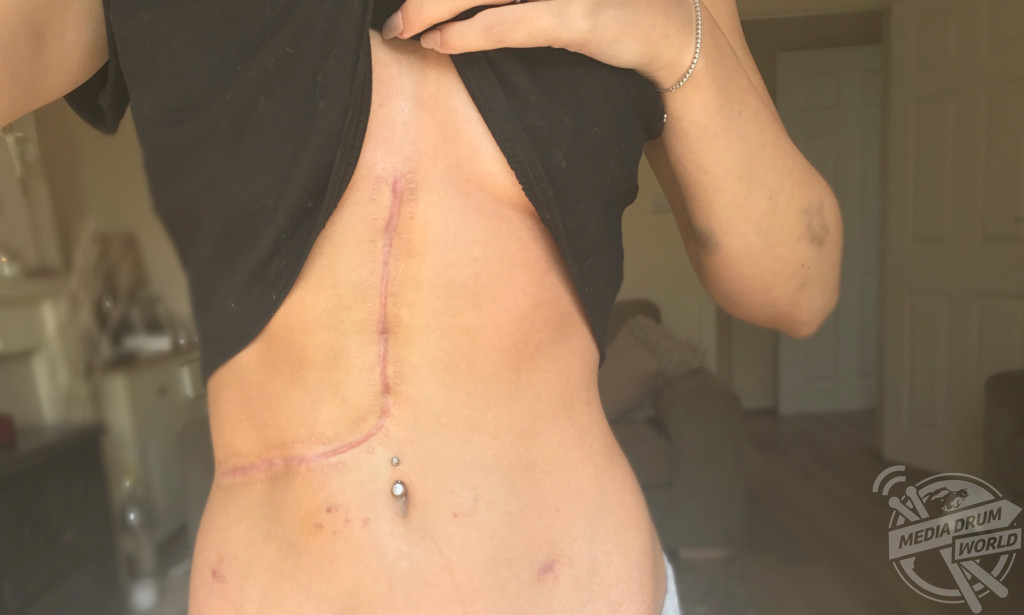
“There were a few things that worried me during treatment, would the chemotherapy damage my liver and my mum’s financial situation.
“Before the Clic Sargent charity provided free accommodation for my mum, she had to pay ridiculous amounts of money to stay in housing near the hospital, and it was made even harder by the fact she lost her job so that she could stay with me in London.”

Now in remission, Sophie hopes to be an inspiration for other people living with cancer or having gone through a transplant. She is now focussing on learning sign language so that she can work with children with special needs.
“I want people to know that the battle they are going through, either cancer or having a transplant will make them a stronger person,” she said.
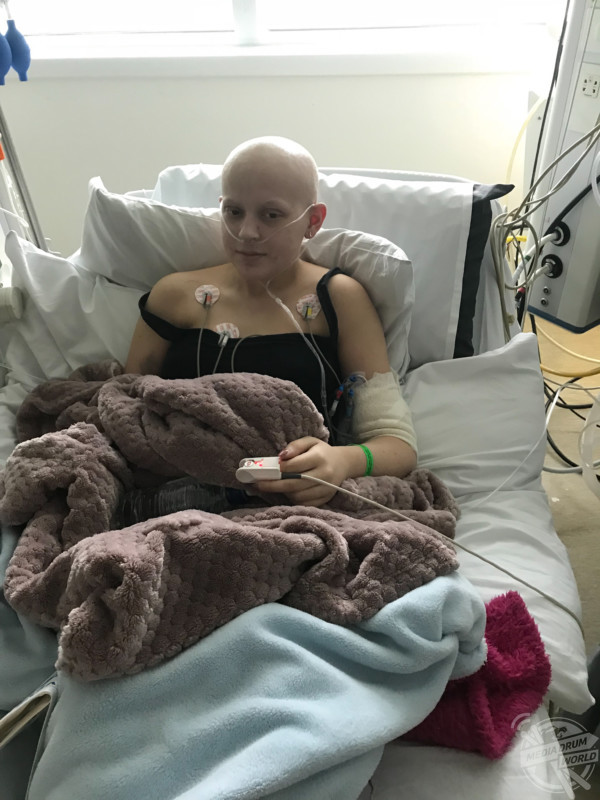
“Appreciate the life you have, it is so precious you have to live it to the fullest.
“If you are struggling in life, either physically or mentally, believe in yourself. Show off your scars, embrace the bald look from chemotherapy and most importantly learn to love yourself.”
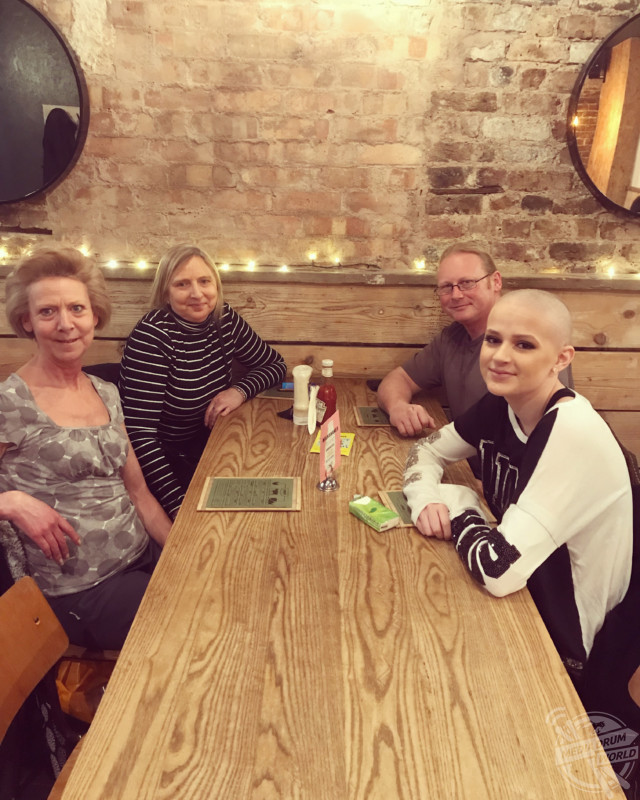
For more information see www.instagram.com/sophiehinksxx






